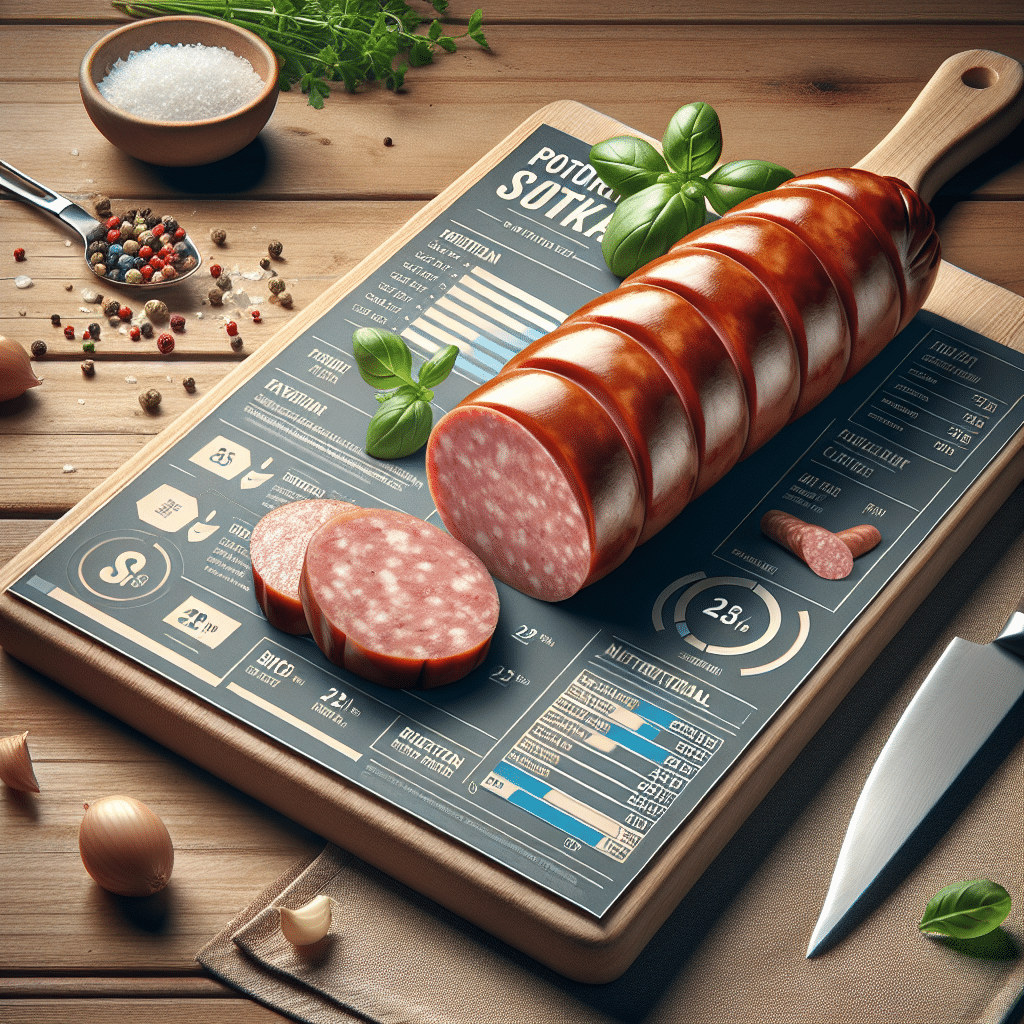How Much Protein in a Bratwurst? Exploring Meaty Nutrition
-
Table of Contents
- Protein Content in Bratwurst: A Nutritional Deep Dive
- Understanding Bratwurst: A Meaty Delight
- Protein in Bratwurst: The Numbers
- Comparing Bratwurst to Other Protein Sources
- Nutritional Considerations for Bratwurst Consumption
- Bratwurst in Different Diets
- Healthier Ways to Enjoy Bratwurst
- Conclusion: Balancing Taste and Nutrition
- Discover ETprotein’s Plant-Based Protein Options
Protein Content in Bratwurst: A Nutritional Deep Dive

When it comes to savory and hearty foods, bratwurst is a popular choice for many meat lovers. This traditional German sausage is a staple at barbecues and Oktoberfest celebrations, known for its rich flavor and versatility. But beyond its taste, many health-conscious individuals are curious about the nutritional content of bratwurst, particularly its protein content. In this article, we’ll explore the protein in bratwurst and how it fits into a balanced diet.
Understanding Bratwurst: A Meaty Delight
Before diving into the nutritional specifics, it’s important to understand what bratwurst is. Bratwurst is a type of German sausage made from pork, beef, or veal. The name “bratwurst” is derived from the Old High German Brätwurst, from brät-, which is finely chopped meat, and Wurst, or sausage. Though it originated in Germany, bratwurst has become popular worldwide, with various regions putting their own spin on the recipe.
Protein in Bratwurst: The Numbers
Protein is a crucial macronutrient necessary for building and repairing tissues, making enzymes and hormones, and maintaining good health. As a meat product, bratwurst is naturally high in protein. The exact amount of protein in bratwurst can vary depending on the ingredients and the size of the sausage. On average, a single bratwurst sausage (about 85 grams or 3 ounces) contains approximately:
- 14 to 20 grams of protein
- 200 to 300 calories
- 15 to 25 grams of fat
These figures can fluctuate based on the specific recipe and whether additional ingredients such as cheese or other flavorings are included.
Comparing Bratwurst to Other Protein Sources
When considering protein sources, it’s helpful to compare bratwurst to other common foods. For instance:
- A 3-ounce serving of chicken breast contains about 26 grams of protein.
- The same serving of lean beef offers around 22 grams of protein.
- A cup of cooked lentils provides about 18 grams of protein.
While bratwurst has a decent protein content, it’s also higher in fat and calories compared to leaner meats and plant-based proteins.
Nutritional Considerations for Bratwurst Consumption
While bratwurst can be part of a protein-rich diet, there are other nutritional factors to consider:
- Saturated Fat: Bratwurst contains a significant amount of saturated fat, which can contribute to heart disease if consumed in excess.
- Sodium: Processed meats like bratwurst are often high in sodium, which can lead to increased blood pressure and other health issues.
- Portion Control: Due to its calorie density, it’s important to consume bratwurst in moderation, especially if you’re watching your weight.
For those looking to enjoy bratwurst while maintaining a healthy diet, it’s advisable to balance its intake with plenty of vegetables, whole grains, and other lean protein sources.
Bratwurst in Different Diets
Depending on your dietary preferences or restrictions, bratwurst may or may not be a suitable protein source. Here’s how it fits into various diets:
- Keto: Due to its high fat content, bratwurst can be suitable for a ketogenic diet, which prioritizes fats over carbs.
- Paleo: Bratwurst can be paleo-friendly if made without additives or preservatives and sourced from grass-fed animals.
- Vegetarian/Vegan: Traditional bratwurst is not an option for vegetarians or vegans, but there are plant-based alternatives that mimic the flavor and texture.
Healthier Ways to Enjoy Bratwurst
If you’re looking to include bratwurst in your diet without overindulging, consider the following tips:
- Choose bratwurst made with leaner meats or lower-fat options.
- Grill or bake bratwurst instead of frying to reduce added fats.
- Serve bratwurst with a generous portion of vegetables to balance the meal.
- Look for bratwurst with reduced sodium content to lower your salt intake.
Conclusion: Balancing Taste and Nutrition
In conclusion, bratwurst can be a tasty and protein-rich addition to your diet when consumed in moderation. With an average of 14 to 20 grams of protein per sausage, it provides a substantial amount of this essential macronutrient. However, it’s important to consider the accompanying fat, calories, and sodium. By making informed choices and practicing portion control, you can enjoy bratwurst as part of a balanced and nutritious diet.
Discover ETprotein’s Plant-Based Protein Options
If you’re looking for alternative protein sources, ETprotein offers a range of plant-based protein products that can complement or replace traditional meat options like bratwurst. Their selection includes organic rice protein, clear rice protein, pea protein, and more, all characterized by a neutral taste and non-GMO, allergen-free attributes. Whether you’re formulating new food products or seeking to enrich your diet with plant-based proteins, ETprotein has you covered.
About ETprotein:
ETprotein, a reputable plant protein vegan protein Chinese factory manufacturer and supplier, is renowned for producing, stocking, exporting, and delivering the highest quality organic bulk vegan protein and plant proteins. They include Organic rice protein, clear rice protein, pea protein, clear pea protein, watermelon seed protein, pumpkin seed protein, sunflower seed protein, mung bean protein, peanut protein etc. Their offerings, characterized by a neutral taste, non-GMO, allergen-free attributes, cater to a diverse range of industries. They serve nutraceutical, pharmaceutical, cosmeceutical, veterinary, as well as food and beverage finished product distributors, traders, and manufacturers across Europe, USA, Canada, Australia, Thailand, Japan, Korea, Brazil, and Chile, among others.
ETprotein specialization includes exporting and delivering tailor-made protein powder and finished nutritional supplements. Their extensive product range covers sectors like Food and Beverage, Sports Nutrition, Weight Management, Dietary Supplements, Health and Wellness Products, and Infant Formula, ensuring comprehensive solutions to meet all your protein needs.
As a trusted company by leading global food and beverage brands and Fortune 500 companies, ETprotein reinforces China’s reputation in the global arena. For more information or to sample their products, please contact them and email sales(at)ETprotein.com today.














